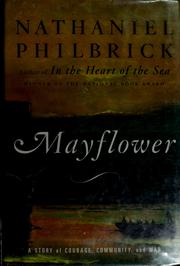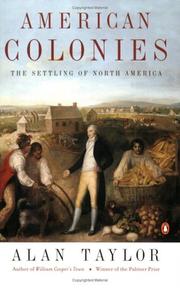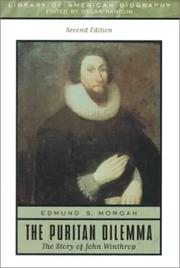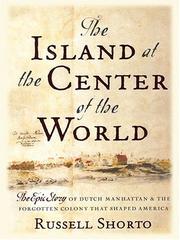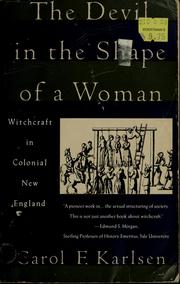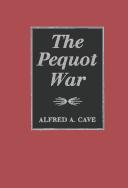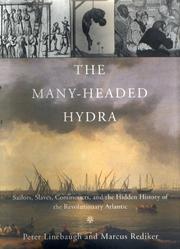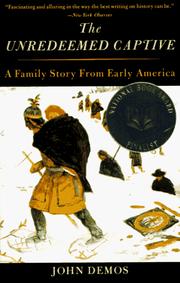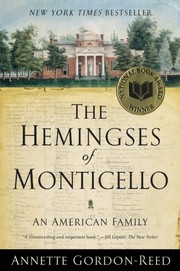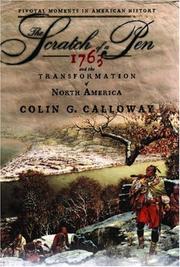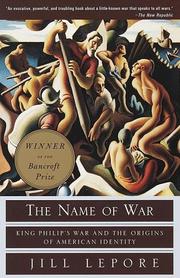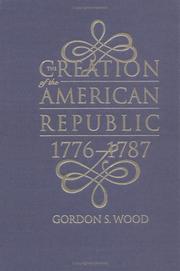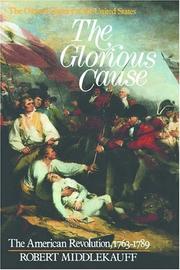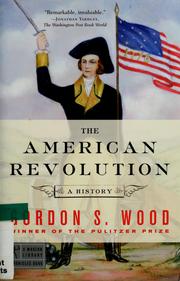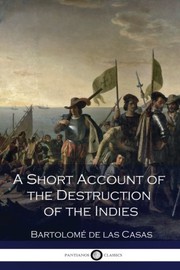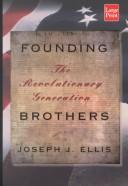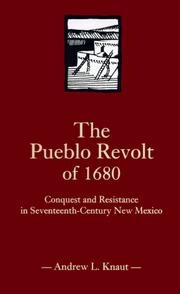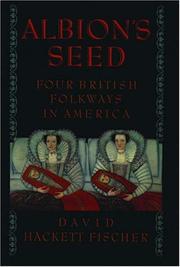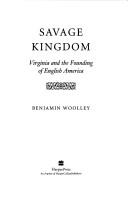Are you a history buff fascinated by the early colonial period? Dive into the past with our curated list of the 20 best books on early colonial history. From the first encounters between European explorers and indigenous peoples to the establishment of the 13 colonies, these books offer captivating insights into the complexities of the colonial era. Explore the triumphs and tribulations of early settlers, the clashes of cultures, and the political and social dynamics that shaped the foundation of modern-day America. Whether you’re a student, scholar, or simply an avid reader, these early colonial history books are sure to transport you back in time and deepen your understanding of this pivotal period in history.
Contents
- 1 20 Best Early Colonial History Books
- 2 Mayflower: A Story of Courage, Community, and War
- 3 American Colonies: The Settling of North America
- 4 The Puritan Dilemma: The Story of John Winthrop
- 5 The Island at the Center of the World: The Epic Story of Dutch Manhattan and the Forgotten Colony That Shaped America
- 6 The Devil in the Shape of a Woman: Witchcraft in Colonial New England
- 7 The Pequot War
- 8 The Many-Headed Hydra: Sailors, Slaves, Commoners, and the Hidden History of the Revolutionary Atlantic
- 9 The Unredeemed Captive: A Family Story from Early America
- 10 The Birth of the Republic, 1763-89
- 11 The Hemingses of Monticello: An American Family
- 12 The Scratch of a Pen: 1763 and the Transformation of North America
- 13 The Name of War: King Philip’s War and the Origins of American Identity
- 14 The Creation of the American Republic, 1776-1787
- 15 The Glorious Cause: The American Revolution, 1763-1789
- 16 The American Revolution: A History
- 17 A Short Account of the Destruction of the Indies
- 18 The Founding Brothers: The Revolutionary Generation
- 19 The Pueblo Revolt of 1680: Conquest and Resistance in Seventeenth-Century New Mexico
- 20 Albion’s Seed: Four British Folkways in America
- 21 Savage Kingdom: The True Story of Jamestown, 1607, and the Settlement of America
- 22 Final Thoughts on Best Early Colonial History Books
- 23
20 Best Early Colonial History Books
Mayflower: A Story of Courage, Community, and War
by Nathaniel Philbrick
Mayflower: A Story of Courage, Community, and War by Nathaniel Philbrick is a captivating book on early colonial history that delves into the incredible journey of the Mayflower and the Pilgrims who settled in Plymouth. Philbrick’s narrative not only follows the Pilgrims’ perilous voyage across the Atlantic but also explores the complex relationship between the settlers and the Native American tribes, particularly the Wampanoag people.
Through meticulous research and vivid storytelling, Philbrick brings to life the challenges and triumphs of the early colonial settlers, shedding light on their struggles, alliances, and conflicts. The book vividly portrays the courage and resilience of the Pilgrims as they navigate the harsh realities of their new world and the impact of their presence on the indigenous people.
Mayflower is a compelling and thought-provoking book about early colonial history that offers a fresh perspective on the interactions between the European settlers and Native Americans, making it a must-read for anyone interested in the intricacies of America’s early colonial period.
American Colonies: The Settling of North America
by Alan Taylor
American Colonies: The Settling of North America by Alan Taylor is a captivating book on early colonial history that delves into the diverse and complex experiences of the settlers who forged the foundations of the United States. Taylor’s comprehensive account explores the various European powers and indigenous peoples who shaped the landscape of North America, offering a nuanced portrayal of the colonial period.
Through meticulous research and engaging storytelling, Taylor brings to life the struggles, triumphs, and conflicts that defined the early colonial history of the continent. Readers will gain a deeper understanding of the economic, political, and social dynamics that influenced the development of the American colonies, as well as the interactions between different cultural groups.
With its rich detail and insightful analysis, this book about early colonial history is essential reading for anyone interested in gaining a deeper understanding of the complex and multifaceted origins of the United States. Taylor’s masterful storytelling and compelling narrative make American Colonies a must-read for enthusiasts of early colonial history.
The Puritan Dilemma: The Story of John Winthrop
by Edmund S. Morgan
The Puritan Dilemma: The Story of John Winthrop by Edmund S. Morgan is a captivating book on early colonial history that delves into the life of one of the most influential figures in the early days of the Massachusetts Bay Colony. Morgan skillfully portrays the challenges and conflicts faced by John Winthrop as he navigates the complexities of leading a Puritan community in the New World.
Through vivid storytelling and meticulous research, the author provides a rich and insightful account of the religious, political, and social dynamics that shaped the early American colonies. Readers will gain a deeper understanding of the early colonial history as they follow Winthrop’s journey, from his leadership struggles to his efforts in establishing a thriving community based on Puritan principles.
With its engaging narrative and thought-provoking analysis, The Puritan Dilemma offers a compelling exploration of the challenges and triumphs of the early settlers, making it a must-read for anyone interested in early colonial history.
The Island at the Center of the World: The Epic Story of Dutch Manhattan and the Forgotten Colony That Shaped America
by Russell Shorto
The Island at the Center of the World by Russell Shorto is a captivating book about early colonial history that delves into the forgotten story of Dutch Manhattan and its lasting impact on America. Shorto brings to life the vibrant and diverse society that existed in 17th-century New Amsterdam, shedding light on the Dutch influence on the development of American culture and politics.
Through meticulous research and engaging storytelling, Shorto reveals the complexities of the Dutch colony, from its unique system of governance to its role as a melting pot of different cultures and religions. The book offers a fresh perspective on the early colonial history of America, highlighting the contributions of the Dutch settlers and the ways in which their legacy continues to shape the nation today.
With its rich detail and compelling narrative, The Island at the Center of the World is a must-read for anyone interested in early colonial history and the foundations of American society.
The Devil in the Shape of a Woman: Witchcraft in Colonial New England
by Carol F. Karlsen
The Devil in the Shape of a Woman: Witchcraft in Colonial New England by Carol F. Karlsen is a captivating and insightful book about early colonial history. Karlsen explores the role of women in the witchcraft hysteria that swept through New England in the 17th century. Through meticulous research, she uncovers the social, economic, and religious factors that contributed to the accusations of witchcraft and the subsequent trials. Karlsen challenges the traditional narrative of witches as outsiders and instead presents them as women who defied societal norms and threatened the established power structure. This provocative early colonial history book sheds light on the complexities of gender dynamics, power struggles, and the fear of the unknown in a time of great social upheaval. The Devil in the Shape of a Woman is a must-read for anyone interested in delving into the darker and often overlooked aspects of early American history.
The Pequot War
by Alfred A. Cave
The Pequot War by Alfred A. Cave is a captivating book on early colonial history that delves into the conflict between English settlers and the Pequot tribe in the 17th century. Cave masterfully reconstructs the events leading up to the war, the brutal battles, and the aftermath, offering a comprehensive look at this pivotal moment in American history.
Through meticulous research and vivid storytelling, Cave brings to life the key players on both sides of the conflict, shedding light on the complex dynamics and motivations that fueled the war. Readers will gain a deeper understanding of the power struggles, cultural clashes, and alliances that shaped the outcome of the Pequot War.
This book about early colonial history is a must-read for anyone interested in the tumultuous interactions between European settlers and Native American tribes during the early years of colonization. With its rich detail and compelling narrative, The Pequot War offers a fascinating exploration of a critical chapter in early colonial history.
The Many-Headed Hydra: Sailors, Slaves, Commoners, and the Hidden History of the Revolutionary Atlantic
by Peter Linebaugh and Marcus Rediker
The Many-Headed Hydra: Sailors, Slaves, Commoners, and the Hidden History of the Revolutionary Atlantic by Peter Linebaugh and Marcus Rediker is a groundbreaking book about early colonial history that challenges traditional narratives of the Atlantic world. Linebaugh and Rediker delve into the lives of sailors, slaves, and commoners to uncover the hidden history of resistance and rebellion in the early modern era.
Through vivid storytelling and meticulous research, the authors paint a compelling portrait of the interconnected struggles for freedom and justice that spanned the Atlantic world. They reveal how ordinary people, often marginalized in traditional historical accounts, played a crucial role in shaping the early colonial history of the Atlantic.
This book on early colonial history sheds light on the complex web of power, exploitation, and resistance that characterized the revolutionary Atlantic. It is a must-read for anyone interested in understanding the diverse and dynamic forces that shaped the early colonial history of the Atlantic world.
The Unredeemed Captive: A Family Story from Early America
by John Demos
The Unredeemed Captive by John Demos is a captivating exploration of a true family story from the early colonial history of America. The book delves into the harrowing tale of the Williams family, who were living in Deerfield, Massachusetts when a Native American raid in 1704 forever changed their lives. The narrative follows the capture of Eunice Williams, the daughter of the Williams family, and her subsequent integration into Native American society. Demos skillfully weaves together historical research and vivid storytelling to provide a compelling account of the complex relationships and cultural clashes that shaped early colonial America. Through the lens of the Williams family, the author offers a nuanced portrayal of the interactions between European settlers and Native Americans during a tumultuous period in American history. The Unredeemed Captive is a thought-provoking and meticulously researched book about early colonial history that sheds light on the complexities of cultural exchange and identity in the early American frontier.
The Birth of the Republic, 1763-89
by Edmund S. Morgan
The Birth of the Republic, 1763-89 by Edmund S. Morgan is a captivating book on early colonial history that delves into the tumultuous period leading up to the birth of the United States. Morgan skillfully explores the political, social, and economic forces that shaped the American Revolution and the founding of the republic. Through vivid storytelling and meticulous research, he brings to life the key figures and events that defined this pivotal era in American history.
Morgan’s insightful analysis sheds light on the complex dynamics of the colonies, the growing tensions with the British Empire, and the profound impact of the revolutionary ideas that ultimately led to the birth of a new nation. This book about early colonial history provides a rich and nuanced understanding of the origins of the United States, making it essential reading for anyone interested in the early colonial history of America. The Birth of the Republic, 1763-89 is a thought-provoking and illuminating exploration of a crucial period in American history.
The Hemingses of Monticello: An American Family
by Annette Gordon-Reed
The Hemingses of Monticello: An American Family by Annette Gordon-Reed is a groundbreaking book on early colonial history that delves into the complex and often untold story of the Hemings family, who were enslaved by Thomas Jefferson. Through meticulous research and compelling storytelling, Gordon-Reed unravels the lives of the Hemingses, shedding light on their experiences as individuals and as a family within the context of the American South’s peculiar institution of slavery.
This book about early colonial history challenges traditional narratives and offers a nuanced portrayal of the relationships between the Hemings family and the founding father, Thomas Jefferson. Gordon-Reed’s work not only provides a deeper understanding of the dynamics of power and race in early America, but also humanizes the individuals whose stories have often been overlooked or simplified in historical accounts. The Hemingses of Monticello is a must-read for anyone interested in gaining a comprehensive and empathetic perspective on early colonial history.
The Scratch of a Pen: 1763 and the Transformation of North America
by Colin G. Calloway
The Scratch of a Pen: 1763 and the Transformation of North America is a fascinating book about early colonial history that delves into the significant events of 1763 and their impact on the transformation of North America. Colin G. Calloway skillfully explores the aftermath of the Seven Years’ War and the signing of the Treaty of Paris, which marked a crucial turning point in the history of the continent. Through meticulous research and compelling narrative, Calloway vividly portrays the political, economic, and social consequences of this pivotal moment, shedding light on the complex relationships between Native Americans, European powers, and colonial settlers. This book on early colonial history provides a thought-provoking analysis of the power struggles, territorial changes, and cultural shifts that shaped the future of North America. With its engaging storytelling and insightful perspective, The Scratch of a Pen offers a captivating journey through a crucial period in early colonial history.
The Name of War: King Philip’s War and the Origins of American Identity
by Jill Lepore
The Name of War: King Philip’s War and the Origins of American Identity by Jill Lepore is a fascinating book on early colonial history. Lepore delves into the complexities of King Philip’s War, a devastating conflict between Native Americans and English colonists in the 1670s. She explores the ways in which this conflict shaped the emerging American identity and influenced the course of colonial history.
Through meticulous research and compelling storytelling, Lepore examines the cultural and political dynamics of the time, shedding light on the perspectives of both Native Americans and English settlers. She challenges traditional narratives of the war, offering new insights into the complexities of identity, power, and violence in the early American colonies.
With its rich detail and thought-provoking analysis, The Name of War is a must-read for anyone interested in understanding the origins of American identity and the complex interactions between different cultural groups in the early colonial history.
The Creation of the American Republic, 1776-1787
by Gordon S. Wood
The Creation of the American Republic, 1776-1787 by Gordon S. Wood is a seminal book on early colonial history, offering an in-depth exploration of the formative years of the United States. Wood delves into the intellectual, political, and social developments that shaped the American Republic during this crucial period, providing a captivating analysis of the ideas and events that laid the foundation for the nation’s political system.
Through meticulous research and compelling prose, Wood brings to life the debates, conflicts, and compromises that ultimately led to the creation of the American Republic. Readers will gain a deeper understanding of the complexities and contradictions that characterized the early years of the United States, as well as the enduring impact of the founding fathers’ vision for the nation.
Whether you’re a history enthusiast or simply curious about the book about early colonial history, The Creation of the American Republic, 1776-1787 is a must-read for anyone interested in gaining insight into the origins of the American political system and the ideals that continue to shape the nation today.
The Glorious Cause: The American Revolution, 1763-1789
by Robert Middlekauff
The Glorious Cause: The American Revolution, 1763-1789 by Robert Middlekauff is a comprehensive and captivating book on early colonial history. Middlekauff delves deep into the complexities of the American Revolution, exploring the political, social, and ideological factors that led to the birth of a new nation. With meticulous research and vivid storytelling, the author brings to life the key players, events, and battles that shaped the course of American history.
Readers will be immersed in the turbulent times of the 18th century, witnessing the struggles and triumphs of the American colonies as they fought for independence from British rule. Middlekauff’s nuanced analysis and engaging narrative make this book about early colonial history a must-read for anyone interested in understanding the origins of the United States.
Whether you’re a history enthusiast or simply curious about the birth of a nation, The Glorious Cause offers a compelling exploration of early colonial history that will leave you enlightened and inspired.
The American Revolution: A History
by Gordon S. Wood
The American Revolution: A History by Gordon S. Wood is a captivating book on early colonial history that delves into the events leading up to and during the American Revolution. Wood provides a comprehensive overview of the political, social, and economic factors that contributed to the rise of revolutionary sentiment in the American colonies. Through meticulous research and engaging storytelling, Wood brings to life the key figures and pivotal moments that shaped the course of the revolution.
Readers will gain a deeper understanding of the tensions between the colonies and Great Britain, the influence of Enlightenment ideas on revolutionary thought, and the struggles and sacrifices of the men and women who fought for independence. Wood’s insightful analysis and compelling narrative make this book about early colonial history a must-read for anyone interested in understanding the origins and significance of the American Revolution. Whether you’re a history enthusiast or simply curious about this transformative period in American history, Wood’s early colonial history book is sure to enlighten and inspire.
A Short Account of the Destruction of the Indies
by Bartolomé de las Casas
A Short Account of the Destruction of the Indies by Bartolomé de las Casas is a harrowing and eye-opening book on early colonial history. Written by a Spanish colonist turned advocate for indigenous rights, this powerful work provides a firsthand account of the atrocities committed against the native peoples of the Americas during the Age of Exploration.
De las Casas documents the brutal treatment and exploitation of the indigenous populations by the Spanish conquistadors, shedding light on the devastating impact of colonization on the native civilizations. His passionate and vivid descriptions of the violence, enslavement, and cultural destruction inflicted upon the indigenous people make this book a compelling and important read for anyone interested in understanding the dark side of early colonial history.
A Short Account of the Destruction of the Indies serves as a poignant reminder of the human cost of conquest and colonization, and continues to be a significant and relevant work in the study of early colonial history.
The Founding Brothers: The Revolutionary Generation
by Joseph J. Ellis
The Founding Brothers: The Revolutionary Generation by Joseph J. Ellis is a riveting book on early colonial history that delves into the relationships and interactions between the key figures of America’s founding era. Through a series of engaging and insightful narratives, Ellis sheds light on the dynamics between revolutionary leaders such as George Washington, Thomas Jefferson, John Adams, and Alexander Hamilton, offering a fresh perspective on the complexities of their personal and political connections.
Ellis skillfully explores the conflicts, collaborations, and rivalries that shaped the nation’s early years, providing a rich tapestry of early colonial history that goes beyond the conventional retelling of events. The book offers a compelling look at the challenges and decisions faced by these influential men as they navigated the tumultuous landscape of post-revolutionary America.
With its vivid storytelling and incisive analysis, The Founding Brothers is a must-read for anyone interested in gaining a deeper understanding of the intricate web of relationships and conflicts that defined the early colonial history of the United States.
The Pueblo Revolt of 1680: Conquest and Resistance in Seventeenth-Century New Mexico
by Andrew L. Knaut
The Pueblo Revolt of 1680: Conquest and Resistance in Seventeenth-Century New Mexico by Andrew L. Knaut is a compelling book on early colonial history that delves into the complex dynamics of power, resistance, and cultural exchange in seventeenth-century New Mexico. Knaut provides a comprehensive examination of the events leading up to the Pueblo Revolt, exploring the interactions between the Spanish colonizers and the indigenous Pueblo people.
Through meticulous research and evocative storytelling, Knaut offers a vivid portrayal of the social, political, and religious tensions that ultimately culminated in a dramatic uprising against Spanish rule. The book about early colonial history also sheds light on the diverse strategies of resistance employed by the Pueblo communities, as well as the lasting impact of the revolt on the region’s history and identity.
With its rich narrative and insightful analysis, The Pueblo Revolt of 1680 is a must-read for anyone interested in early colonial history and the complex interplay between conquest and indigenous resilience in the Americas.
Albion’s Seed: Four British Folkways in America
by David Hackett Fischer
Albion’s Seed: Four British Folkways in America by David Hackett Fischer is a fascinating book on early colonial history that explores the cultural and social influences of four distinct British regional cultures on the development of America. Fischer delves into the migration patterns and societal norms of the Puritans from East Anglia, the Cavaliers from the English Midlands, the Quakers from the North Midlands, and the borderers from the Scottish-English border. Through meticulous research and captivating storytelling, Fischer paints a vivid picture of how these diverse folkways shaped the values, traditions, and behaviors of the early American settlers.
By examining the distinct customs, beliefs, and practices of these four groups, Fischer offers a compelling analysis of the lasting impact of their regional cultures on the formation of American society. Albion’s Seed is a must-read for anyone interested in understanding the rich tapestry of early colonial history and the enduring legacy of British cultural influences in America.
Savage Kingdom: The True Story of Jamestown, 1607, and the Settlement of America
by Benjamin Woolley
Savage Kingdom: The True Story of Jamestown, 1607, and the Settlement of America by Benjamin Woolley is a gripping and meticulously researched book on early colonial history. Woolley delves into the harrowing tale of the first English settlement in America, bringing to life the struggles, triumphs, and betrayals that defined the Jamestown colony. Through vivid storytelling and rich historical detail, Woolley paints a vivid picture of the perils and promise of this pivotal moment in American history.
Readers will be drawn into the world of 17th-century Virginia, where English adventurers and Native American tribes clashed, alliances were forged, and the foundations of a new nation were laid. Woolley expertly navigates the complex dynamics of power, survival, and cultural exchange, shedding light on the often overlooked complexities of early colonial interactions. Whether you’re a history buff or simply curious about this tumultuous period, Savage Kingdom is an essential book about early colonial history that will leave you enthralled and enlightened.
Final Thoughts on Best Early Colonial History Books
Exploring the rich and complex history of early colonial America, these 20 best books about Early Colonial History provide a fascinating glimpse into the people, events, and cultures that shaped the foundation of the United States. From in-depth analyses of the first European settlements to compelling narratives of the interactions between colonists and Native Americans, these books offer a comprehensive and enlightening perspective on this pivotal period in American history. Whether you’re a history enthusiast or simply curious about the origins of the United States, these books are essential reads for anyone interested in delving into the captivating world of early colonial history.
Which book about Early Colonial History is best?
The best book on Early Colonial History can vary with personal preference, but three widely recommended titles are:
- Mayflower: A Story of Courage, Community, and War by Nathaniel Philbrick,
- American Colonies: The Settling of North America by Alan Taylor,
- The Puritan Dilemma: The Story of John Winthrop by Edmund S. Morgan.
Each offers valuable insights and could be a great starting point.
What are the best books to learn about Early Colonial History?
For those looking to learn about Early Colonial History, there is a wealth of literature that can provide a comprehensive understanding of the subject. Some of the most highly recommended books include:
- Mayflower: A Story of Courage, Community, and War by Nathaniel Philbrick,
- American Colonies: The Settling of North America by Alan Taylor,
- The Puritan Dilemma: The Story of John Winthrop by Edmund S. Morgan,
- The Island at the Center of the World: The Epic Story of Dutch Manhattan and the Forgotten Colony That Shaped America by Russell Shorto,
- The Devil in the Shape of a Woman: Witchcraft in Colonial New England by Carol F. Karlsen,
- The Pequot War by Alfred A. Cave,
- The Many-Headed Hydra: Sailors, Slaves, Commoners, and the Hidden History of the Revolutionary Atlantic by Peter Linebaugh and Marcus Rediker,
- The Unredeemed Captive: A Family Story from Early America by John Demos,
- The Birth of the Republic, 1763-89 by Edmund S. Morgan,
- The Hemingses of Monticello: An American Family by Annette Gordon-Reed
These books offer a range of perspectives on Early Colonial History, covering various aspects and approaches to the subject.
What are the best books about Early Colonial History?
The best books about Early Colonial History are:
- Mayflower: A Story of Courage, Community, and War by Nathaniel Philbrick,
- American Colonies: The Settling of North America by Alan Taylor,
- The Scratch of a Pen: 1763 and the Transformation of North America by Colin G. Calloway,
- The Name of War: King Philip’s War and the Origins of American Identity by Jill Lepore,
- The Unredeemed Captive: A Family Story from Early America by John Demos,
- The Pequot War by Alfred A. Cave.
Each offers unique insights into the subject. While these books about Early Colonial History are highly regarded, it’s important to note that any list of ‘best’ books is subjective and reflects a range of opinions.
What are the best Early Colonial History books of all time?
Choosing the best Early Colonial History books of all time can vary depending on who you ask, but five titles that are often celebrated include
- Mayflower: A Story of Courage, Community, and War by Nathaniel Philbrick,
- American Colonies: The Settling of North America by Alan Taylor,
- The Devil in the Shape of a Woman: Witchcraft in Colonial New England by Carol F. Karlsen,
- The Unredeemed Captive: A Family Story from Early America by John Demos,
- and The Scratch of a Pen: 1763 and the Transformation of North America by Colin G. Calloway.
Each of these books has made a significant impact in the field of Early Colonial History and continues to be influential today.

